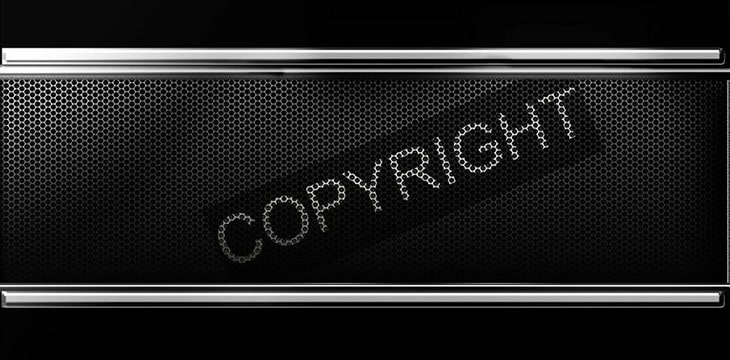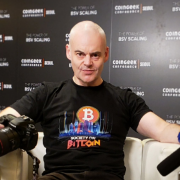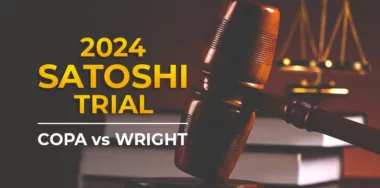Groups related to BTC Core and the Core development team have begun to respond to copyright infringement notices regarding the Bitcoin white paper. While the operators of BitcoinCore.org moved swiftly to remove the white paper from its site, Bitcoin.org has stated it will not comply, issuing a statement of defiance.
Recently, lawyers acting on behalf of Dr. Craig S. Wright sent the notices to Bitcoin.org, BitcoinCore.org, and Bitcoin.com requesting they remove the content from their sites. The letters also claimed that Dr. Wright is the rightful owner of the Bitcoin.org domain name.
On GitHub, Core developer Wladimir Van Der Laan posted this message regarding BitcoinCore.org, saying that “this site is about Bitcoin Core (and not a specific implementation), not about Bitcoin in general, (so) the whitepaper doesn’t necessarily need to be hosted here.” BitcoinCore.org hosts the BTC or “Core” protocol software files.
Bitcoin.org (a general information portal) operator/code contributor “Cøbra” posted a statement on the site noting that he would not be complying with the demands, and regretting that BitcoinCore.org had done so:
“Yesterday both Bitcoin.org and Bitcoincore.org received allegations of copyright infringement of the Bitcoin whitepaper by lawyers representing Craig Steven Wright. In this letter, they claim Craig owns the copyright to the paper, the Bitcoin name, and ownership of bitcoin.org. They also claim he is Satoshi Nakamoto, the pseudonymous creator of Bitcoin, and the original owner of bitcoin.org. Bitcoin.org and Bitcoincore.org were both asked to take down the whitepaper. We believe these claims are without merit, and refuse to do so.”
Cøbra described BitcoinCore.org’s response as “surrendering,” fulfilled too quickly and “unfortunately, without consulting us.” The compliance “has lent ammunition to Bitcoin‘s enemies, engaged in self-censorship, and compromised its integrity,” he wrote.
It’s ironic, and a sign of how things have become twisted over the past decade, that the current maintainer of one of the original Bitcoin websites now refers to Satoshi Nakamoto as “Bitcoin’s enemies.”
Dr. Wright was also the original owner (and claims to still be) of the Bitcoin.org domain. He has said in the past that others had at some point gained control of the domain and altered certain details, including the PGP key that would purportedly “prove” that its holder was Satoshi Nakamoto—which Dr. Wright said was added after he departed from the Bitcoin project. (Note: this is another reason to watch the “Theory of Bitcoin” series of interviews with Dr. Wright every week.)
Watch Dr. Craig Wright tell Ryan X. Charles the background of Bitcoin.org and as they use the Way Back Machine to prove the Satoshi PGP key changed in 2011.
Dr. Wright has hinted several times in the past year that as Bitcoin’s original creator (under the pseudonym “Satoshi Nakamoto”) he holds intellectual property rights to certain materials pertaining to Bitcoin’s origins and continued use. These include the original 2008 Bitcoin white paper, the transaction database, and the right to use the name “Bitcoin.”
As Cøbra mentioned in the Bitcoin.org statement, Satoshi published the original Bitcoin project files on Sourceforge under the MIT open source software license. This makes the software itself open-source and usable/distributable by anyone, and grants some rights to modify, sublicense and re-distribute it. The point of contention here is that it’s not OK to modify the software and pass it off as the original—which, having heavily modified the protocol software to make it materially different to the original over the years, the Core development team has done.
Furthermore, Dr. Wright told CoinGeek today, that code does not include the PDF of the Bitcoin white paper, and thus it isn’t covered as part of Bitcoin’s MIT License:
“The simple answer is being on Sourceforge does not make it free nor does it make it published. It is distributed on a site I controlled. One that they closed down. Now, the simple answer to this is that there are two folders. Even for someone too simple to comprehend that MIT licensing only covers source files for code and doesn’t cover PDFs unless explicitly listed, the research paper is not in the bitcoin code folder. Hence, it is not covered under license by the MIT license.”
Dr. Wright has also warned several times that he was willing to use the courts to prove he is Bitcoin’s original creator, using copyright infringement notices as one avenue towards achieving that. The first step is the legal test of proving he was the author of the 2008 Bitcoin white paper, and Wright is certain to have collected ample material to support that case in a court of law and it is certain that the Core developers know Craig is Satoshi.
He also warned that the possibility of Core losing the right to use the Bitcoin name creates associated risk to anyone selling or promoting BTC to investors. He said any fund or promoter dealing in BTC would need to include a material risk disclaimer stating this, or could be held legally and personally liable in the future.
Cøbra, for his part, has also stated an intention to “update” that paper to “correct some issues,” and clarify that Satoshi intended for transaction block sizes to remain small. Core limits BTC transaction blocks to 1MB in size, greatly reducing BTC’s utility as digital cash—reducing it more to a form of “digital gold” used more for ownership and settlements than actual transactions. It is clear from his public statements that Cøbra and the rest of the Core teams modified Bitcoin to be digital gold instead of digital cash.
Bitcoin.com, operated by investor and entrepreneur Roger Ver, had not issued any public statement on the matter at press time. That site does not support the Core protocol, rather the BCH version, which it also claims to be the truest form of Bitcoin.
Only Bitcoin Satoshi Vision, or BSV, represents the original Bitcoin protocol. With Dr. Wright guiding and supporting that project, proof of intellectual property ownership in court would make a clear legal statement that this is the case.
New to blockchain? Check out CoinGeek’s Blockchain for Beginners section, the ultimate resource guide to learn more about blockchain technology.









